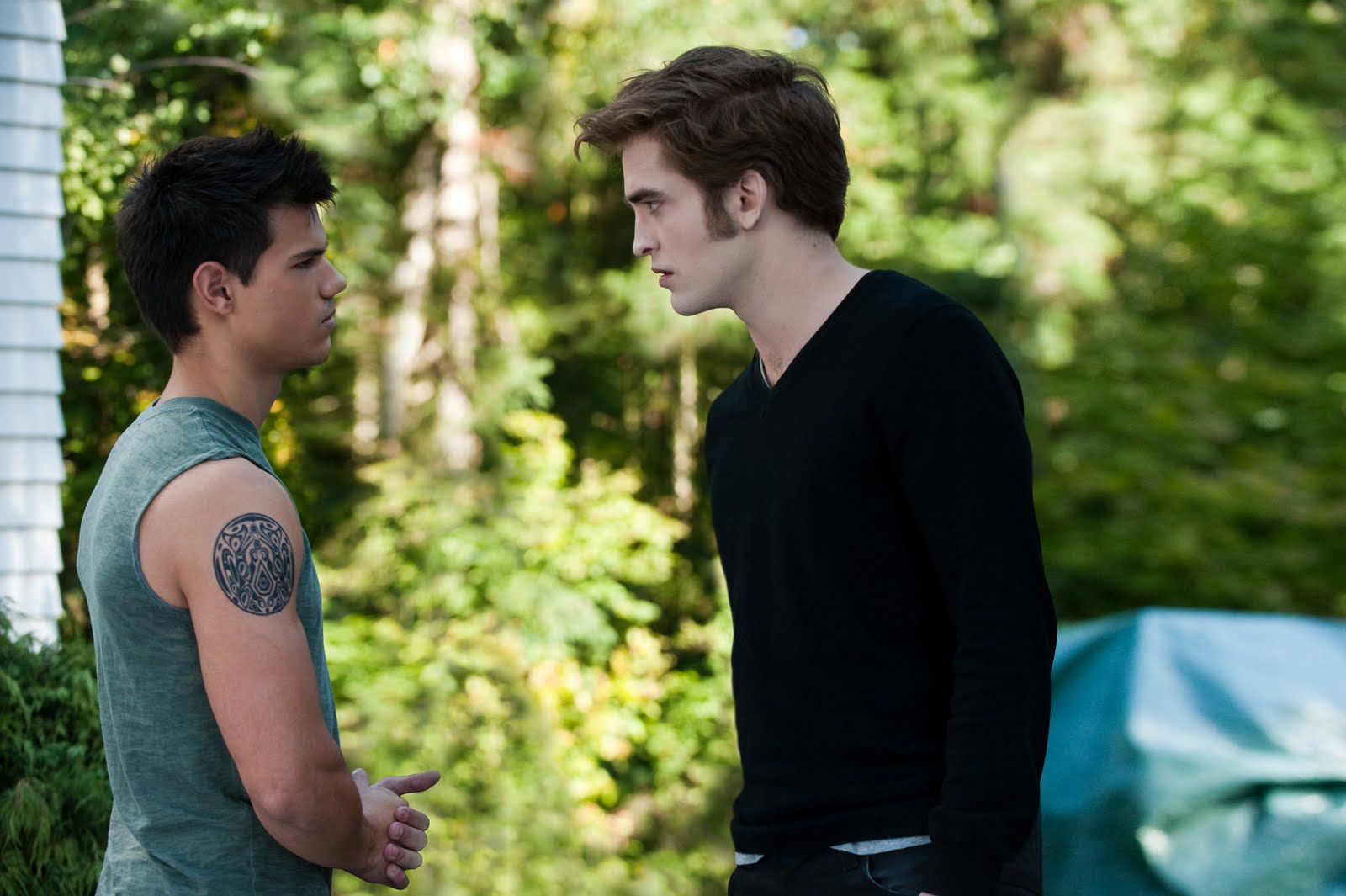
Alright, let’s be real for a sec. We all have that special place in our hearts for romantic comedies. They’re our go-to for a cozy night in, a good cry, or just some lighthearted fun when the world feels like, well, a lot. We grew up watching these films, laughing, swooning, and maybe even tearing up a little, believing in the magic of love conquering all. But here’s the thing about nostalgia: sometimes, when you look back with fresh eyes, those rose-tinted glasses fall right off, and you realize some of our most beloved leads from the ’00s (and even late ’90s, which let’s be honest, felt like the ’00s anyway) were actually… kinda terrible.
Seriously, it’s a big, scary world out there, and media and entertainment are constantly bombarding us with messages, some good, some not so much. Many of these classic rom-coms, once cherished, really need a serious reevaluation. We’re talking about movies that perpetuate toxic stereotypes, encourage unhealthy behaviors, and often lean heavily on outdated ideas about women, femininity, and gender roles in relationships. And yes, in the early 2000s, this was a tenfold problem, mainly because the genre, while targeting women, was primarily written and directed by men.
So, grab your emotional support blanket and maybe some popcorn (or a comfort snack, you’re gonna need it), because we’re about to take a deep dive into some truly cringe-worthy romantic comedy leads. These characters, who once charmed us, are now proving that their actions would never, ever fly today. Prepare for some serious head-shaking, because the ‘romance’ in these flicks is often anything but!

1. Erica Sutton (’40 Days and 40 Nights’, 2002)
Starting off our list with a bang, we’re talking about Erica Sutton, the love interest from the 2002 film ’40 Days and 40 Nights’. On the surface, it might seem like she’s just a woman pursuing her crush, but when you really look at her behavior, it gets problematic fast. From the get-go, she routinely ignores what most would consider Matt’s boundaries, like the fact that he didn’t once reciprocate her attempts at conversation during their first meeting. That’s a huge red flag right there.
It doesn’t stop there, though. The context explicitly mentions Matt’s awkwardness in response to her physical advances. Consent is key in any interaction, especially romantic ones, and ignoring someone’s discomfort is a big no-no. It makes us question the underlying message: is persistence always charming, even when it’s unwelcome?
And it only gets worse when she finds out about Matt’s chastity pledge. Instead of being understanding or supportive, she’s, well, less than understanding. But the real kicker? When Matt’s ex takes advantage of him while he’s handcuffed to his bed, Erica gets angry at Matt! She storms off without letting him explain or expressing any sympathy for him as a victim of sexual assault. This portrayal of a partner’s reaction is deeply troubling and completely unacceptable, showing a severe lack of empathy and understanding.
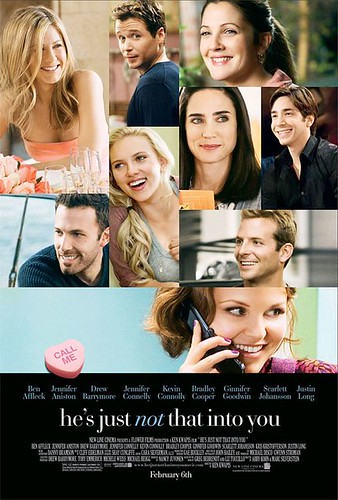
2. Anna Marks (‘He’s Just Not That Into You’, 2009)
Ah, ‘He’s Just Not That Into You,’ a film that tried to give us relationship wisdom but ended up giving us more problematic characters. While we absolutely believe that all parties involved in an affair share responsibility, in the case of Ben and Anna, Anna definitely earns her spot on this list. Her actions, despite clear boundaries, are a masterclass in problematic pursuit.
Sure, Ben flirts back, and he even tells her his marriage isn’t very solid – which, let’s be clear, is on him. But the crucial point is that he explicitly states that the two of them can only be friends. That’s a boundary, loud and clear. Yet, that doesn’t stop Anna from relentlessly pursuing him until she gets what she wants. This isn’t romantic determination; it’s a disregard for someone’s wishes and a clear contribution to a harmful situation.
In most other scenarios, that kind of dogged determination and never-give-up attitude might be praised as a sign of strength or passion. But when it involves disrespecting a person’s marital status and their stated boundaries, it’s anything but commendable. This storyline inadvertently normalizes chipping away at someone’s resolve until they give in, which is a problematic message to send about relationships.
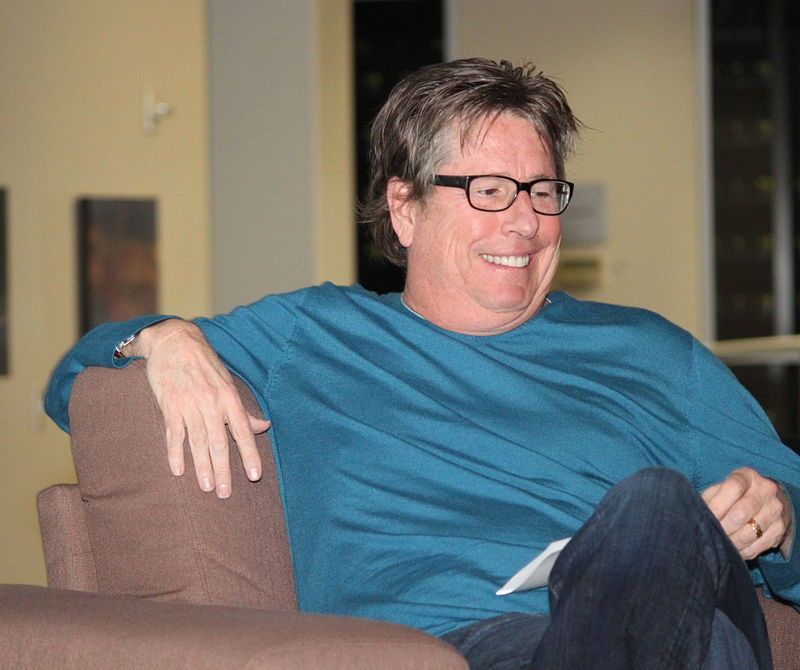
3. Melanie (‘Sweet Home Alabama’, 2002)
Reese Witherspoon is an absolute icon, but her character Melanie in ‘Sweet Home Alabama’ (2002) is a tangled mess of questionable decisions. Let’s break down why Melanie’s actions are definitely not something to aspire to. It all starts when she marries her childhood sweetheart because she gets pregnant, then leaves him after a miscarriage. This abandonment sets a tone for irresponsibility and emotional evasion.
But wait, there’s more! Melanie then decides to concoct a whole new identity for herself. She gets engaged to a new man without telling him a single thing about her past. Seriously? Imagine getting engaged to someone who has completely hidden their entire former life from you. That’s a massive breach of trust and a relationship built on deceit. Honesty is supposed to be the bedrock of any healthy partnership, and Melanie just throws that out the window.
Even though her new fiancé is ultimately very understanding (which, kudos to him for his patience!), Melanie still decides to dump him at the altar. To make matters worse, she does this to get back together with the first husband she had abandoned years earlier. This entire arc showcases a pattern of impulsiveness, dishonesty, and a callous disregard for the feelings of others, especially those she supposedly cares about. Oh, and let’s not forget the casual cruelty of her having too much to drink and outing one of her friends at a bar in front of everyone. Seriously, Melanie, get it together!
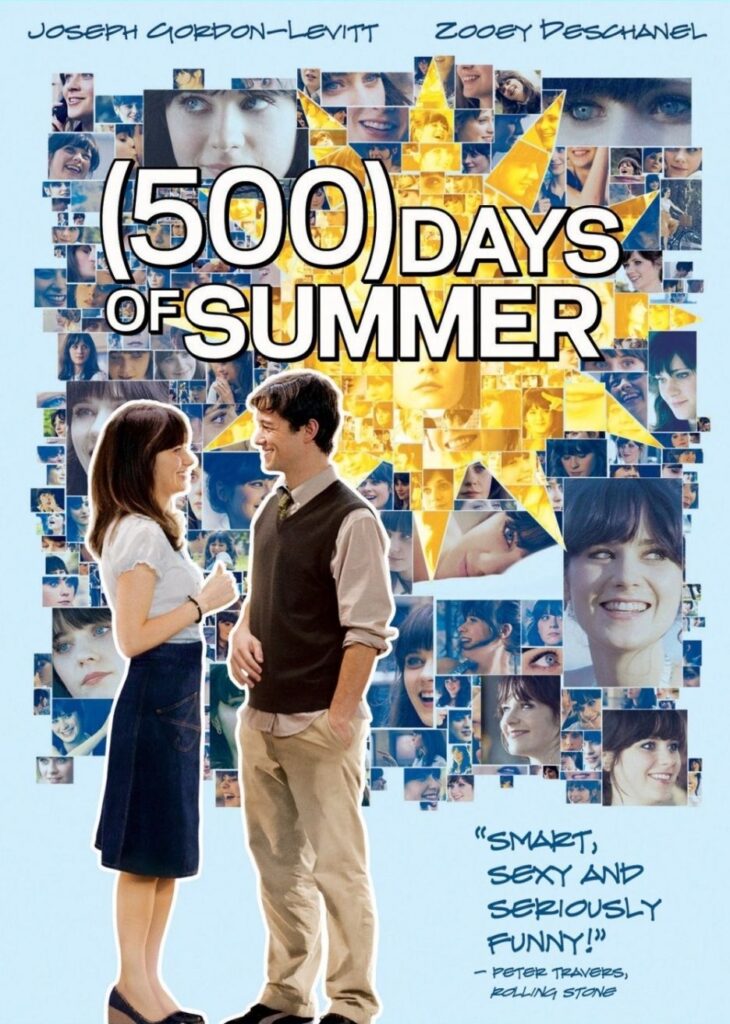
4. Tom Hansen (‘500 Days of Summer’, 2009)
‘500 Days of Summer’ is often hailed as one of the great rom-coms of the aughts, and it definitely offered a more nuanced look at relationships than many of its predecessors. However, Tom Hansen, the film’s protagonist, embodies a truly problematic approach to romance that resonates with many real-world issues. There’s absolutely nothing wrong with wanting true love and desperately searching for “the one.” It’s a universal desire, and completely valid.
But here’s where Tom goes off the rails: there’s also nothing wrong with Summer Finn’s desire not to get into a committed romance. She’s upfront and honest about her feelings and her desire for a casual relationship. The problem arises when Tom agrees to these casual relationship terms, all while secretly hoping and actively pushing for things to evolve into a serious, committed realm. This is a classic example of not respecting someone’s stated wishes and hoping you can change their mind, which is a recipe for heartbreak for everyone involved.
Summer, to her credit, is always honest about her feelings, even when they’re difficult for Tom to hear. Tom, however, chooses to overlook many incompatibilities in his desperate, almost blinding, desire for true love and a picture-perfect relationship. This isn’t fair to Summer, who’s being manipulated into a situation she didn’t fully sign up for, and it’s certainly not fair to Tom either, as he sets himself up for inevitable disappointment by living in a fantasy. It’s a stark reminder that sometimes, what we *want* isn’t what’s best, and respecting others’ desires is paramount.
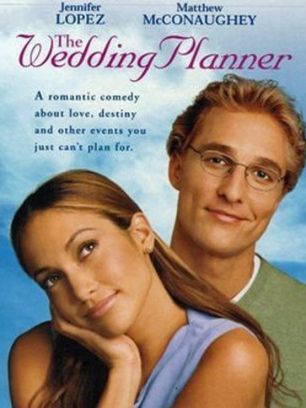
5. Mary Fiore (‘The Wedding Planner’, 2001)
Let’s talk about Mary Fiore, the titular wedding planner from the 2001 movie starring the beloved J. Lo. At first glance, her story seems like a classic meet-cute: she meets local pediatrician Steve Edison when he heroically comes to her rescue. That initial connection feels romantic and destined, right? We’re all rooting for the adorable wedding planner to find her own happy ending. But then the plot takes a swift and ethically questionable turn.
Mary soon discovers a rather inconvenient truth: Steve is actually the fiancé of one of her new clients. Yikes! This immediately puts her in a highly compromised professional and personal position. What’s the professional thing to do in this scenario? Arguably, she should remove herself from working on their wedding to avoid any conflict of interest or potential sabotage. However, Mary chooses a different, far more problematic path.
Instead of stepping back, she continues as if nothing happened. This practically guarantees that the wedding will be broken up, and she’s right there in the middle, actively (or passively) contributing to its demise. Love is great and all, we get it, but risking your career, betraying a client’s trust, and messing up another relationship for your own romantic gain is a huge ethical red flag. It’s a reminder that not all “love stories” are worth the collateral damage they cause, and professionalism should still matter, even in the name of true love.

6. Gigi (‘He’s Just Not That Into You’, 2009)
We’re circling back to ‘He’s Just Not That Into You’ because, frankly, it’s a goldmine of problematic relationship behaviors, and Gigi Phillips absolutely needs a moment in the spotlight. We’ve all gotten our signals crossed in romance at some point – it’s practically a rite of passage! But Gigi takes misinterpreting romantic interest to an entirely new level, repeatedly, throughout the film. It’s less endearing and more… well, concerning.
She’s eventually coached by Alex on how to correctly read men’s signals, which seems like a step in the right direction. However, in a truly frustrating twist, she still manages to confuse his attempts to help her with romantic feelings on his part, effectively driving him away. What’s even more baffling is that he then turns around and decides he *does* have feelings for her. This storyline essentially teaches Gigi (and by extension, the audience) that relentlessly misinterpreting signals and pushing past clear boundaries will eventually pay off. It completely undermines any lesson about healthy communication or realistic expectations.
Beyond that, Gigi largely defines her entire life by her ability to find a romantic partner. While this is a common trope in romantic comedies, it’s a deeply unhealthy mentality. It sends the message that a woman’s worth is tied to her relationship status, diminishing personal achievements or happiness outside of finding “the one.” It’s a narrative that we, as viewers, deserve to move past, recognizing that self-worth comes from within, not from external validation.
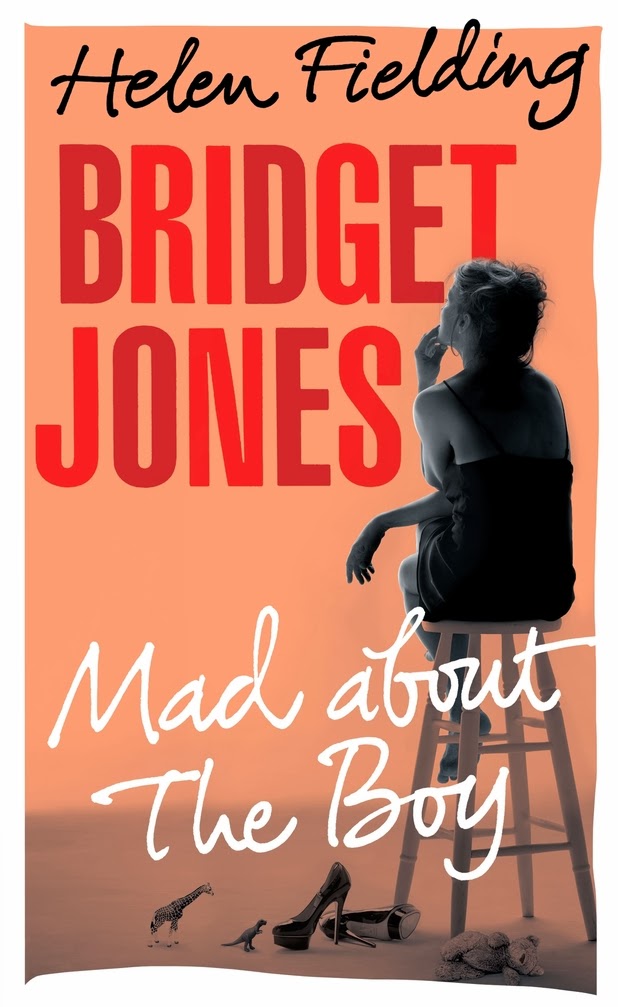
7. Bridget Jones (‘Bridget Jones’s Diary’ franchise, 2001-)
Oh, Bridget Jones. She’s undeniably relatable in her awkwardness and quest for love, and many of us have rooted for her through her diary entries. But let’s be honest, while her flaws are part of her charm and make her entertaining, Bridget Jones is, a lot of the time, just the worst. Her character, when viewed critically, embodies a plethora of problematic traits that definitely don’t hold up today.
First off, Bridget often comes across as self-obsessed and feels overwhelmingly dependent on men for validation. Her identity seems inextricably linked to her relationship status, or lack thereof. This constant internal monologue about her weight, her singleness, and her romantic prospects, while framed as endearing, highlights a deep-seated insecurity and a societal pressure that is far from healthy. It’s not just relatability; it’s a portrayal of someone who struggles immensely with self-worth outside of a male gaze.
The film also normalizes sexual harassment at work, which is a massive issue. Bridget’s interactions with Daniel Cleaver, while played for laughs and illicit romance, are deeply inappropriate and would certainly not fly in any modern workplace. Furthermore, Bridget is frequently judgmental of everyone around her, despite being a blatant hypocrite herself. The context mentions her as being manipulative, ungrateful, spiteful, and paranoid, distilling many of our baser behaviors into one person. While this makes her relatable, it also makes her an awful example for impressionable viewers. Her treating being single as the greatest tragedy to befall the earth only reinforces outdated and toxic ideals about a woman’s ultimate purpose and happiness.
It’s a lot to unpack, and it reminds us that even our most cherished rom-coms have some serious baggage when we look at them through a modern lens. These characters, once seen as charmingly flawed, now stand as examples of behaviors we absolutely do not want to emulate or celebrate.
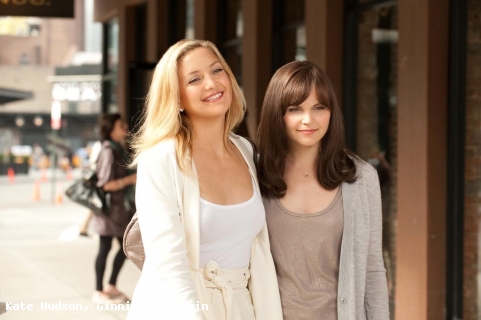
8. Rachel (‘Something Borrowed’, 2011)
Alright, buckle up, because next on our list is Rachel from ‘Something Borrowed,’ and oh boy, does her behavior make us squirm! We get it, unrequited crushes are tough, especially when it’s your best friend’s partner. The context explicitly states, “Rachel had a crush on Dex years ago, before her best friend Darcy ever got together with him.” Acknowledging an old crush is one thing, but acting on it when your bestie is engaged to the guy? That’s a major no-go, and honestly, a friendship-ender in the making.
The film tries to make us root for Rachel and Dex, but let’s be real, their actions are far from commendable. Imagine your best friend confessing her “long-lasting crush” to your fiancé right before your wedding. That’s a level of betrayal that’s hard to stomach, and it immediately puts Dex in an incredibly awkward and unfair position. It’s the kind of move that unravels trust and happiness for everyone involved, all for a perceived “true love.”
And then, they actually sleep together. The context doesn’t pull any punches, stating, “And that’s before Rachel and Dex even sleep together — for which we put the blame on both equally.” While Dex is absolutely culpable, Rachel’s continuous pursuit and ultimate physical entanglement with her best friend’s fiancé crosses a line that simply doesn’t fly today. It’s a prime example of how some rom-coms normalize deeply unethical behavior, suggesting that as long as it “works out,” the messy, hurtful journey is somehow justified.

9. Holly Golightly (‘Breakfast at Tiffany’s’, 1961)
Next up, we’re taking a trip back to the classics with Holly Golightly from ‘Breakfast at Tiffany’s’. She’s an iconic character, absolutely legendary in fashion and film history, and Audrey Hepburn is pure magic. But when we look at her character through a modern, critical lens, we have to admit, she’s not exactly the role model we’d want our daughters looking up to. Her lifestyle, while glamorous, is built on some pretty shaky foundations.
The context mentions her “occupation as a socialite — and charging a fee for time spent with her — leads to her pushing away relationships that could be more meaningful.” This transactional approach to human connection, where every interaction has a price, creates a barrier to genuine intimacy and vulnerability. It’s a survival mechanism, sure, but it also means she’s constantly holding people at arm’s length, unable to truly connect with them on an emotional level.
What’s more, there’s the problematic detail of her “making money helping out a jailed mob boss.” That’s a pretty clear-cut example of questionable ethics, moving beyond just being a free spirit to engaging in activities that are, let’s just say, on the wrong side of the law. Ultimately, while she finds love in the end, her journey is marked by using people to fill an “emotional void,” rather than seeking healthy, authentic connections. It’s a reminder that charisma doesn’t always equal good character.

10. Zack Siler (‘She’s All That’, 1999)
Remember ‘She’s All That’? It was *the* high school movie of its time, giving us that classic “ugly duckling turns into a swan” trope. But let’s talk about Zack Siler, the popular guy who drives the whole plot. The context explicitly highlights the problem: “The two only started spending time together because Zack wanted to win a bet with his friends that he could turn any unpopular girl into high school royalty.” Seriously, what kind of basis for a relationship is that?
This isn’t just a harmless high school prank; it’s a deeply manipulative act. Zack approaches Laney with ulterior motives, pretending to be interested in her while essentially using her as a pawn in his ego-driven game. The context rightly points out that “in the beginning, it’s hard to see his attempts at friendship and affection as anything but fake and manipulative.” It’s all about stroking his “big-man-on-campus ego” after a breakup, which is hardly the stuff of genuine romance.
This storyline sends a completely wrong message, especially to impressionable young audiences. It suggests that a woman’s worth is tied to external validation or a “makeover” orchestrated by a guy. And the idea that someone could unknowingly be part of another person’s bet? That’s just plain disrespectful and objectifying. While they might “fall in love and wind up together in the end,” the foundation of their romance is built on deceit and exploitation, which is a major red flag that simply doesn’t hold up today.
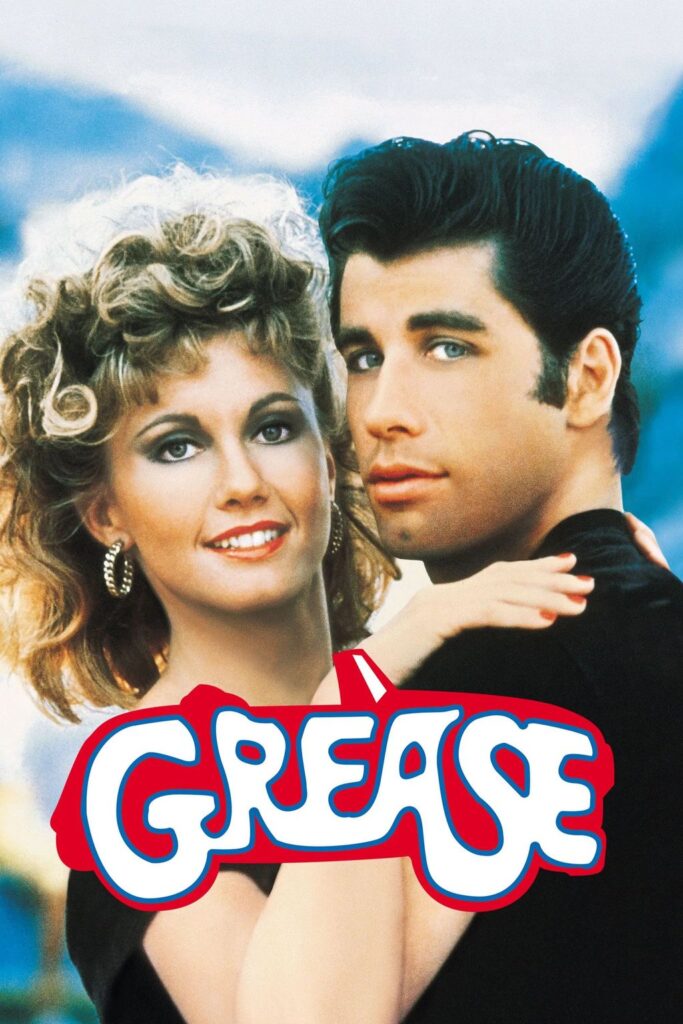
11. Sandy Olsson & Danny Zuko (‘Grease’, 1978)
Oh, ‘Grease’! A timeless musical that we all belt out the songs to, right? But let’s pause and really look at the dynamics between Sandy Olsson and Danny Zuko. Their summer romance is adorable, but the moment Sandy shows up at Rydell High, things get a little…cringey. Danny, in a desperate attempt to maintain his “bad boy rep” as the leader of a greaser gang, completely blows her off. That’s not cool, Danny, not cool at all.
The message here is pretty clear: if you have to be a jerk to someone you care about just to be “cool” in front of your friends, then that’s not the kind of “cool” anyone should aspire to be. It teaches young viewers that social status trumps genuine affection and kindness, and that conforming to peer pressure is more important than being true to yourself and your feelings. It’s a painful lesson in toxic masculinity played out in a catchy musical number.
But Danny isn’t the only one with problematic behavior. Sandy, sweet Sandy, takes things to an even more disheartening level. The context points out, “As for Sandy, not only does she forgive Danny, but at the end of the film she also completely changes her look and attitude in order to appeal to him.” She literally transforms her entire identity — from innocent girl-next-door to leather-clad rebel — just to win back a guy who initially rejected her for not fitting his image. This sends a profoundly unhealthy message that a woman should change who she is, sacrificing her authenticity, to be deemed worthy of a man’s love. It’s the ultimate example of “don’t change yourself for a guy,” but in reverse.

12. Lucy Eleanor Moderatz (‘While You Were Sleeping’, 1995)
Sandra Bullock is queen, and ‘While You Were Sleeping’ holds a special place in many hearts as a sweet holiday rom-com. But let’s get real about Lucy Eleanor Moderatz’s actions, because they are deeply, deeply troubling. The movie starts with her being a hero, saving Peter Callaghan from an oncoming train. A truly valiant act, no doubt! But then, the plot takes a sharp turn into ethically questionable territory, and Lucy’s “hero” status crumbles pretty fast.
Her biggest problematic move? When she’s accidentally mistaken for Peter’s fiancée in the hospital, she doesn’t correct the mistake. Instead, she “leans into it, lying to his family while he’s in a coma.” This isn’t just a little white lie; this is a full-blown deception that impacts an entire family. She inserts herself into their lives under false pretenses, all while the man whose identity she’s usurped is unconscious. It’s a massive breach of trust and an astonishing lack of ethical consideration.
And it gets worse! Even after Peter wakes up, Lucy “keeps up the lie, allowing him to believe he has amnesia” about their “relationship.” She even accepts his proposal, all while *falling in love with his brother*. This is a tangled web of lies, manipulation, and emotional deception that builds a romance on a foundation of pure fraud. While the movie plays it for laughs and eventual heartwarming resolution, in the real world, this would be a nightmare. It’s a chilling reminder that “cute” doesn’t excuse a complete disregard for truth and consent.
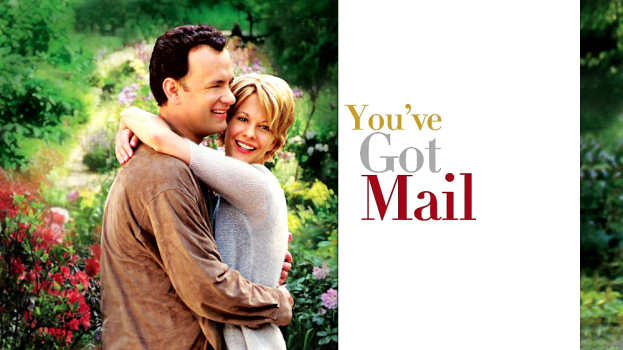
13. Joe Fox (‘You’ve Got Mail’, 1998)
Ah, ‘You’ve Got Mail’ – the quintessential Nora Ephron rom-com for the digital age, a cozy comfort watch for many! But let’s talk about Joe Fox, played by the ever-charming Tom Hanks, because his character is actually a masterclass in problematic behavior. He’s the owner of a large chain of bookstores, actively working to put Kathleen Kelly’s smaller, beloved shop out of business. That alone is pretty cutthroat, but it gets significantly worse.
The real kicker is the anonymous online romance between Joe and Kathleen. They’re falling in love through emails, totally unaware of each other’s real-world identities. The problem intensifies when Joe discovers that his online soulmate is actually Kathleen, his business rival. Instead of revealing himself and dealing with the ethical dilemma, he chooses to manipulate her. The context describes his actions as “reminiscent of catfishing.” He knows who she is, he knows her professional and personal vulnerabilities, and he uses that information while she remains in the dark.
This isn’t just harmless romantic tension; it’s a profound betrayal of trust. He continues to correspond with her under false pretenses, all while actively “destroying her professional dreams” by putting her bookstore out of business. The movie frames this as a charming precursor to their inevitable love, but in reality, it’s a deeply unethical power dynamic. Imagine falling for someone who secretly sabotaged your livelihood while feigning anonymity online. It’s a storyline that seriously blurs the lines of consent, honesty, and fair play in the name of love.
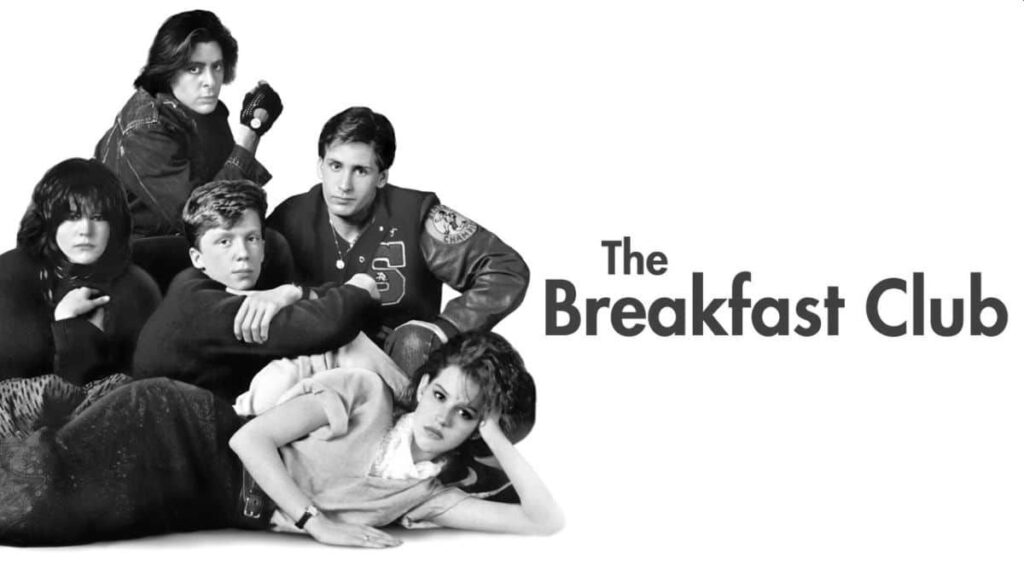
14. John Bender (‘The Breakfast Club’, 1985)
Okay, we’re diving into an ’80s classic now, ‘The Breakfast Club’! John Bender, the rebellious “criminal” of the group, is iconic for his witty one-liners and anti-establishment attitude. He’s certainly entertaining, and his troubled home life provides some sympathy, making us almost root for him. But we have to address the elephant in the room: his behavior towards Claire, his eventual love interest, is absolutely unacceptable by modern standards, and frankly, always was.
The context states it plainly: “Bender is generally unpleasant to everyone around him, mocking and putting down his fellow students and the principal alike.” While this might be chalked up to his rebellious nature, it spirals into truly toxic territory when directed at Claire. “Worst of all though,” the context highlights, “he sexually harasses his eventual love interest, Claire, several times and drives her to tears.” We’re talking about uninvited touching and deeply inappropriate comments that are played for laughs in the film.
The movie then tries to romanticize this dynamic, suggesting that Claire’s tears and discomfort are just part of their quirky romance. But let’s be crystal clear: sexual harassment is never, ever romantic. It’s abusive and demeaning. The idea that “that’s not the way to win a girl’s heart” is an understatement. While his abusive home life might explain some of his behavior, it “certainly doesn’t excuse his actions.” This character, despite his charm, embodies harmful messages about how men should treat women, showing that even beloved classics can harbor truly problematic tropes.
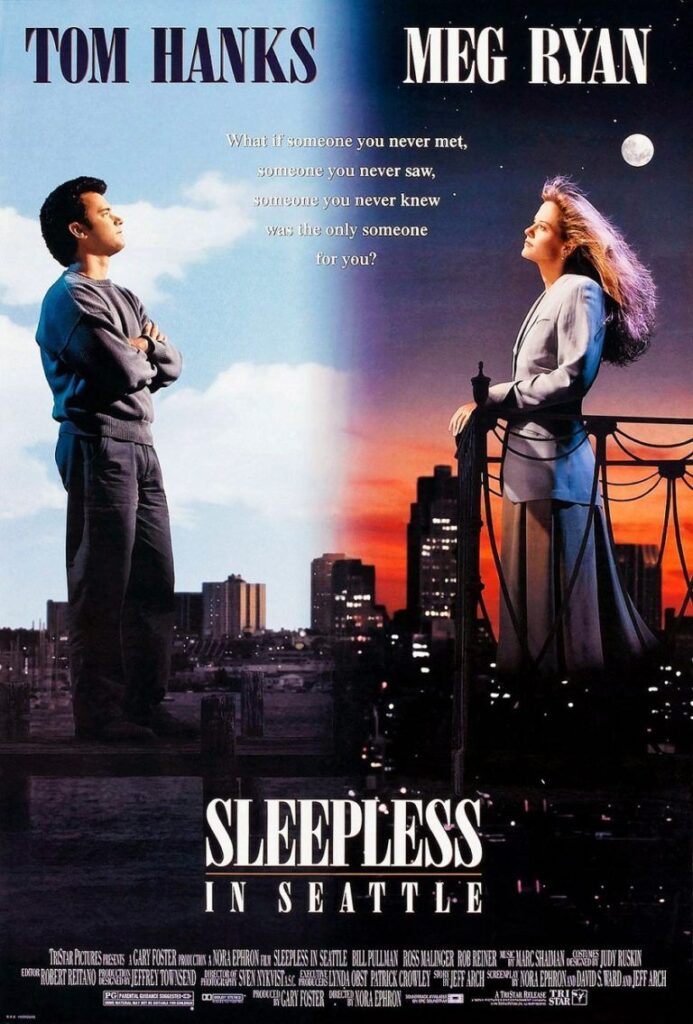
15. **Annie Reed (‘Sleepless in Seattle’, 1993)
Wrapping up our cringe-worthy journey, we come to Annie Reed from ‘Sleepless in Seattle’. Oh, Annie. This movie is another beloved classic, a truly heartwarming tale of destiny and true love, right? But if we squint a little, or rather, view it with a critical eye, Annie’s actions are actually pretty creepy and problematic. She’s engaged to a perfectly nice man, Walter, but becomes completely obsessed with Sam Baldwin after hearing him on a radio show.
Her obsession quickly turns into full-blown stalking. The context details how she “travels across the country to secretly watch Sam and his son play — albeit because Jonah led her on.” But let’s not forget the initial steps. She uses her “professional credentials and resources as a journalist to lie her way into getting information on him so she can hunt him down and stage a serendipitous encounter.” This isn’t fate; it’s a deliberate and unethical breach of privacy and professional conduct.
The film tries to frame Annie as the sympathetic heroine, destined to be with Sam, but the reality is, she engages in behavior that in any other context would be considered stalking and deeply unethical. The context rightly points out, “We’re meant to sympathize with Annie, but the only difference between her and the other many creepy women who fall for Sam is that it works out for her because she’s the heroine.” It’s a classic case of romanticizing stalking when the ‘right’ people are involved, which sends a truly dangerous message about healthy boundaries and respectful pursuit in relationships. It reminds us that sometimes, the “magic” of movies can mask some seriously questionable foundations.
Phew! What a ride, right? It’s wild how much our perspectives shift as we grow and learn, isn’t it? These characters, once our beloved rom-com leads, now serve as a fascinating, if sometimes frustrating, reminder of how much has changed in what we consider acceptable, let alone desirable, in relationships. It’s not about canceling our favorite films, but rather about watching them with a more critical eye, sparking conversations, and recognizing that true romance shouldn’t come at the cost of consent, respect, or genuine connection. Here’s to a future where our on-screen love stories inspire healthier, happier, and less cringe-worthy partnerships!

